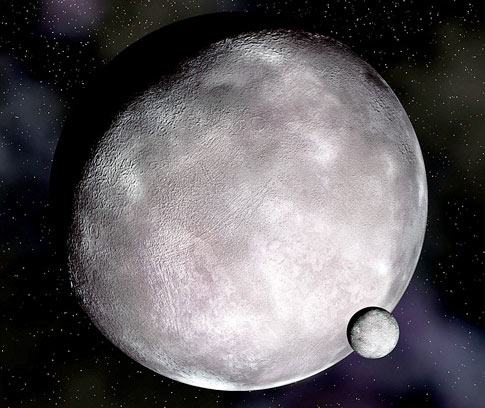 How I Killed Pluto and Why It Had It Coming
How I Killed Pluto and Why It Had It Coming
is a wonderful mixture of love, intrigue, and science recounting the events leading up to the demotion of Pluto from planet to dwarf planet - the reduction in the number of planets from nine to eight.
Planets (meaning wanderers) originally included the seven wandering celestial lights commemorated in the seven days of the week: Sun, Moon, Mercury, Venus, Mars, Jupiter, and Saturn. As our view of the solar system changed, the Sun and the Moon were removed from the list, and Earth was added. New discoveries led to additions (Uranus, Neptune, and Pluto) and deletions (when the first asteroids were discovered the were declared to be planets, temporarily bring the total in the neighborhood of a couple of dozen in the 19th century). Ultimately all the asteroids were demoted to ... asteroids.
As Mike Brown discovered more large bodies beyond Neptune (a.k.a. The Kuiper belt), it was deja vu all over again bringing us to our current understand of the solar system (starting are the Sun: four terrestrial planets, the asteroid belt, four giant planets, and the Kuiper belt).
But this book is so much more than the science - during this time Brown courted and married his wife, had a baby, and had one of his discoveries stolen through an Internet hack. In addition, the decision to reclassify Pluto was wrapped up in the politics of the International Astronomical Union - the society of astronomers responsible for keeping track and naming the stuff out there, re-defining Barycentric Dynamical Time (huh?), and other issues generally important to very few people.
If you are interested in science, research, or scientists, this is a book of people and principles. I recommend it especially to anyone with middle school children who might be interested or can be interested in a career in science - any science.
 What's not to like about a witty, sarcastic heroine named Jaine Austen and her spoiled cat named Prozac trapped in a weight-loss spa with movie stars, a supermarket checkout clerk, and the diet Nazi? In between her snide judgements on everyone in sight and her escapades to procure snacks for herself and Prozac, she solves the murder mystery.
What's not to like about a witty, sarcastic heroine named Jaine Austen and her spoiled cat named Prozac trapped in a weight-loss spa with movie stars, a supermarket checkout clerk, and the diet Nazi? In between her snide judgements on everyone in sight and her escapades to procure snacks for herself and Prozac, she solves the murder mystery.






